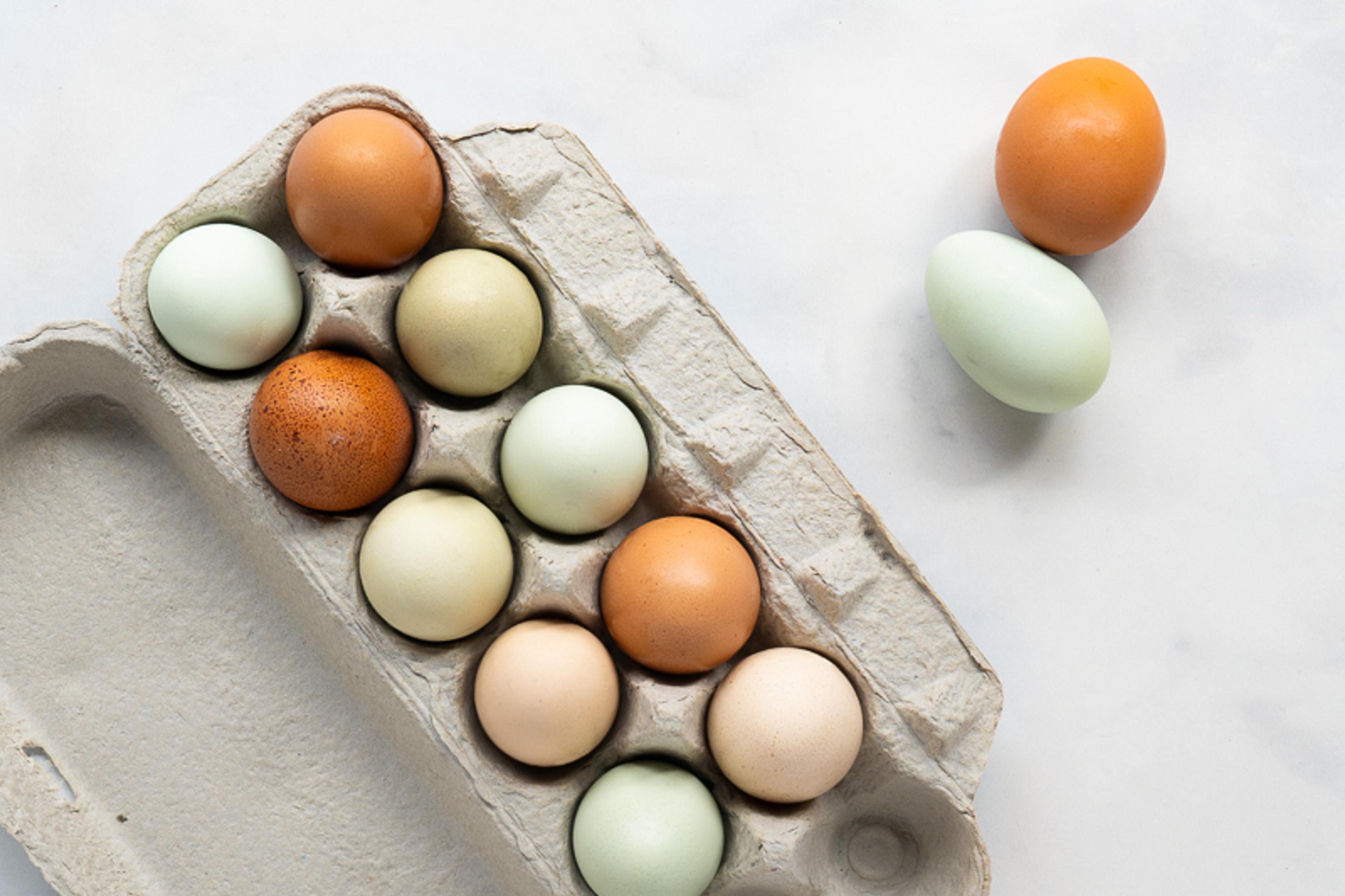Ironbound Farms raises different breeds of pasture-raised hens resulting in a multi-color mix of shells including green, blue, pink, and multiple shades of brown.
Being on pasture and being supplemented with local organic grains gives them a creamy rich yolk. Their freshness being that they are harvested and delivered within a few days gives the yolks a lot of integrity and perkiness. Very noticeable if you're baking or doing anything that involves whipping the whites. The consistency allows air to be incorporated quicker and more of it.
Why are they different colors? The color of an eggshell is determined by the breed of the hen. Some hens lay brown eggs while others lay white, pink, green or blue. Heritage breeds that lay blue and green eggs are not bred for high volume egg production because raising them takes more time and resources and yields less profit at a mass scale. This is why you won’t find rainbow eggs in your average grocery store!
What’s so special? Besides the beautiful colors and obvious taste difference (best eggs ever) these hens replace the need for pest control and fertilizer by foraging. This regenerative farming method is known as silvopasture.

Asbury, NJ
Ironbound Farm is dedicated to growing healthy food, which is produced using resilient ecological stewardship. They are a transitional organic farm--meaning they are converting conventional farmland into organic--and never use synthetic fertilizers, pesticides, or herbicides. Ironbound practices regenerative farming in order to restore and transition the land. Specifically, they use farm-made compost and compost teas, minimize soil disturbance through tillage, and integrate livestock into their farm to provide fertility and pest management. They also practice cover cropping and agroforestry while focusing on perennial crops, reintroducing native plants, and planting wildflower meadows to attract and support beneficial insects (like bees!).
